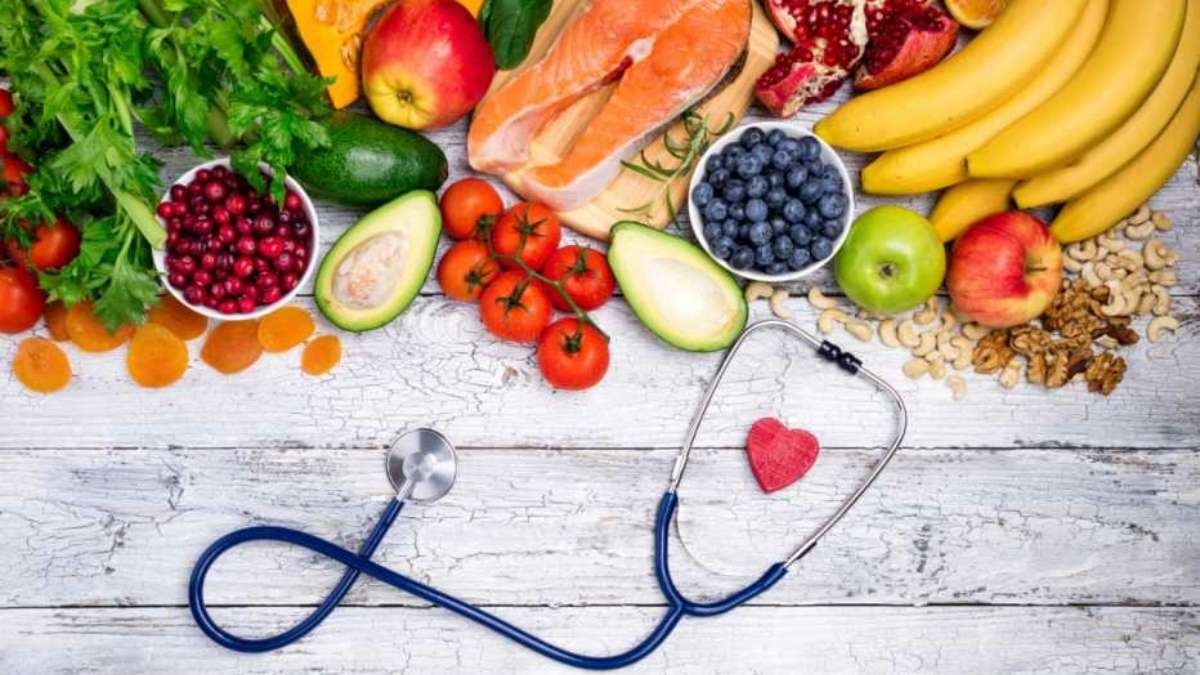
Health: Deficiencies in essential nutrients like iron, calcium, and folate can have a significant impact on your health, leading to symptoms like fatigue, weakened bones, and even complications during pregnancy. Addressing these deficiencies through diet is one of the most effective approaches. Here are five simple and effective ways to overcome these nutrient deficiencies:
1. Iron-Rich Foods
Iron is essential for transporting oxygen in the blood. A lack of iron can cause fatigue, dizziness, and anemia. The two forms of iron are heme (found in animal products) and non-heme (found in plant sources).
What to eat:
- Animal sources: Red meat, poultry, and fish (salmon, sardines).
- Plant-based sources: Lentils, chickpeas, spinach, fortified cereals, and pumpkin seeds.
- Tip: Vitamin C-rich foods like oranges, tomatoes, and bell peppers help improve the absorption of non-heme iron from plant-based sources.
2. Calcium-Rich Foods
Calcium is crucial for maintaining strong bones and teeth, as well as proper muscle and nerve function. Calcium deficiency can lead to weakened bones and a condition called osteoporosis.
What to eat:
- Dairy products: Milk, yogurt, and cheese are excellent sources of calcium.
- Non-dairy sources: Almonds, tofu, fortified plant-based milk (such as almond, soy, or oat milk), broccoli, and leafy greens like kale and collard greens.
- Tip: Pair calcium-rich foods with vitamin D (found in fish, eggs, and fortified foods) to enhance calcium absorption.
3. Folate-Rich Foods
Folate (vitamin B9) is essential for cell growth, red blood cell production, and proper fetal development during pregnancy. Folate deficiency can lead to fatigue, anemia, and birth defects during pregnancy.
What to eat:
- Leafy greens: Spinach, kale, and romaine lettuce.
- Other sources: Lentils, beans, asparagus, avocados, citrus fruits, and fortified cereals.
- Tip: Cooking leafy greens lightly helps preserve their folate content.
4. Incorporate Fortified Foods
Fortified foods can be a great source of iron, calcium, and folate, especially for individuals with dietary restrictions or those who struggle to meet their needs through whole foods alone.
What to eat:
- Iron-fortified cereals, calcium-fortified orange juice, and folate-fortified breads or cereals.
- Tip: Check food labels to ensure you're choosing fortified options with these essential nutrients.
5. Consider Supplements When Necessary
In some cases, dietary intake may not be enough, and supplements may be recommended, especially if deficiencies are severe or during pregnancy when folate needs are higher.
What to take:
- Iron supplements for those with iron-deficiency anemia.
- Calcium supplements for those at risk of osteoporosis.
- Folate supplements (or prenatal vitamins) for pregnant women or those trying to conceive.
Tip: Consult with a healthcare professional before starting any supplement to determine the right dosage and type for your needs.
To overcome iron, calcium, and folate deficiencies, focus on incorporating a variety of nutrient-rich foods into your diet. In cases of severe deficiency, supplements may also be recommended by your healthcare provider. Remember, a balanced diet filled with diverse food sources is key to preventing deficiencies and maintaining overall health.
--Advertisement--

 Desk
Desk Share
Share






